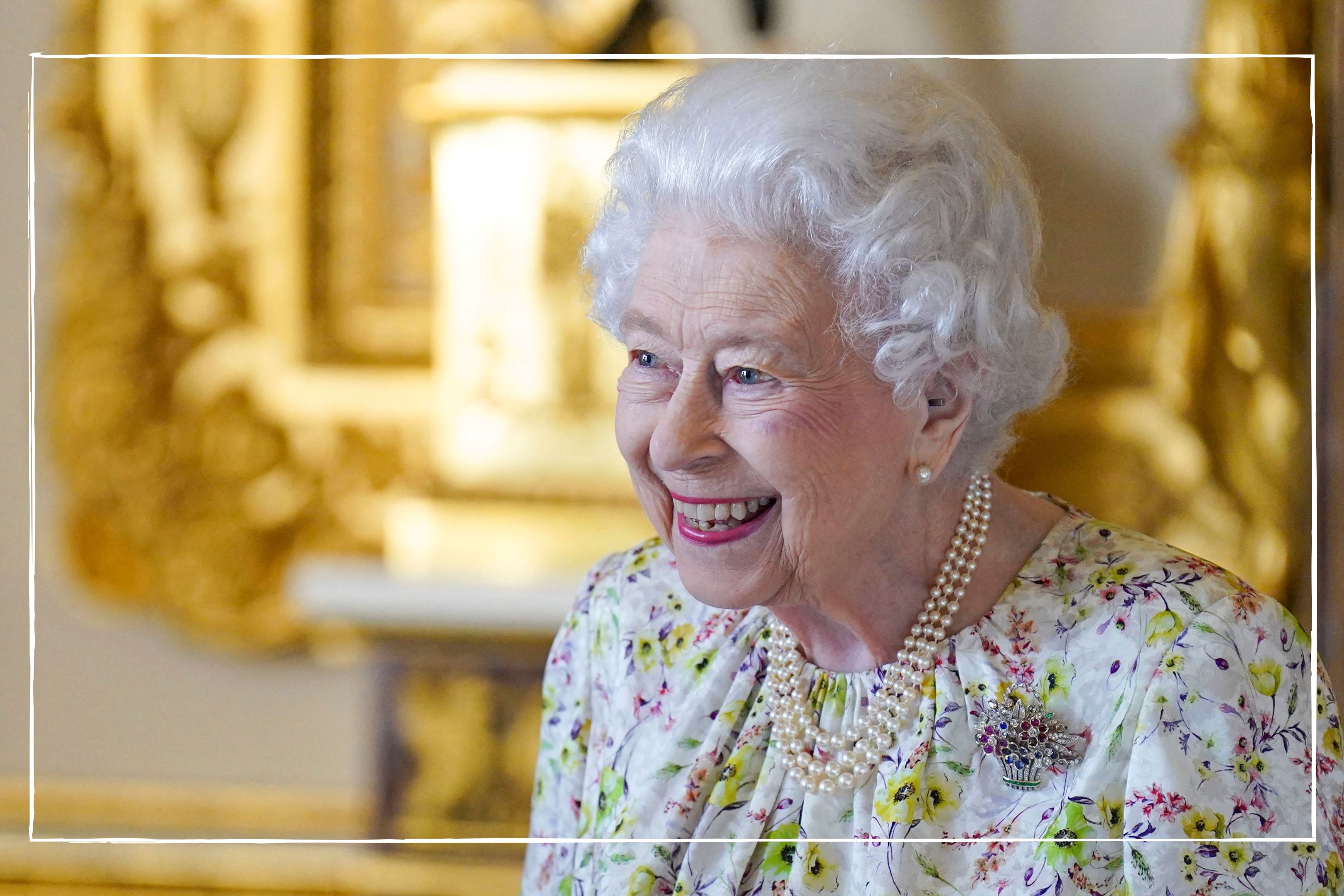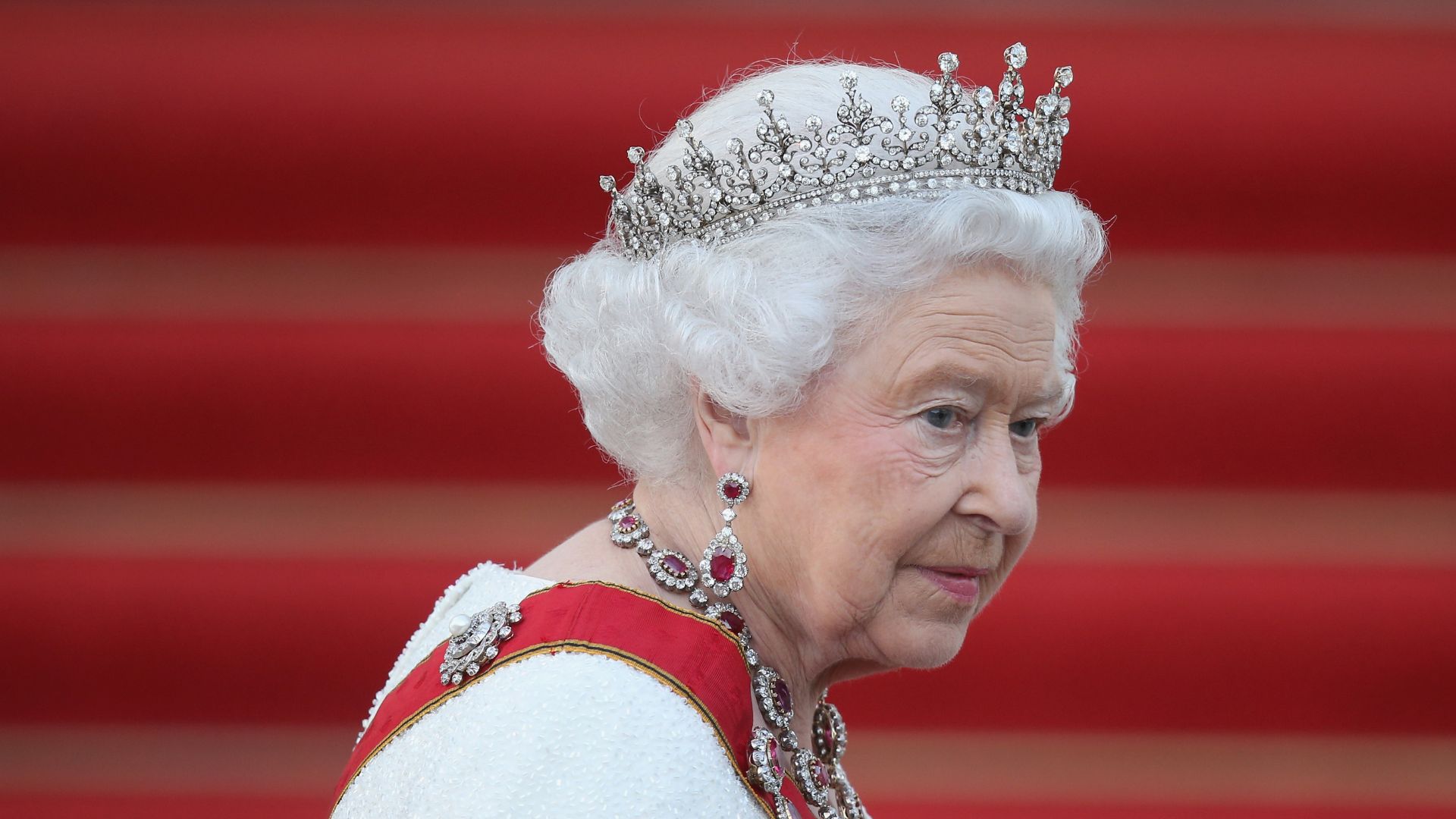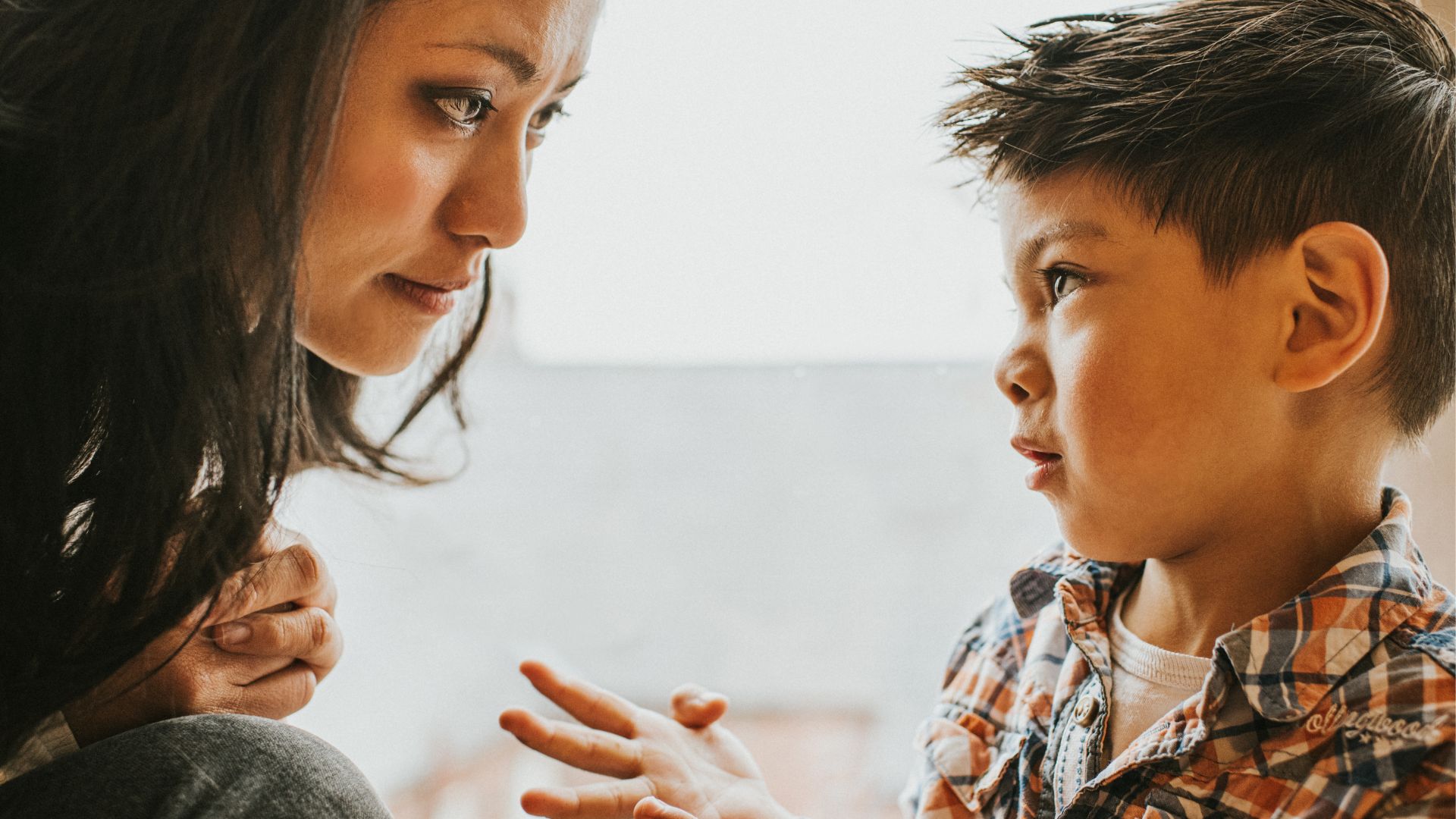How to talk to kids about the Queen’s death - be 'proactive' and use 'real words'
How to talk to kids about the Queen's death, here's what the experts suggest…

Parenting advice, hot topics, best buys and family finance tips delivered straight to your inbox.
You are now subscribed
Your newsletter sign-up was successful
How to talk to kids about the Queen’s death is a topic for discussion among many parents and carers - it’s a sensitive subject.
Queen Elizabeth II, mother, grandmother Corgi owner, and much-loved public figure, sadly died at the age of 96 on Thursday, 8th September. After reigning for 70 years she was a constant in the lives of so many, so her death will be a sensitive topic of discussion
The Queen was part of so many lives since childhood and, while death is never an easy subject to discuss, it’s a little tougher when the passing is of someone who was such a big part of the nation and the world.
Parenting expert, Sarah Ockwell-Smith tells us; “The following days could prove unsettling for children. There will be a sense of collective grief, TV and radio will change, there will be constant sombre music and talk of death and funerals.”
Suzie Phillips, Associate Director at Winston’s Wish adds that children are inquisitive individuals; “... they love to ask questions and want to really understand what is going on and for some children, this may be the first time they hear the words ‘death’ or ‘died’.” Dr Jane Gilmour, Consultant Clinical Psychologist at Great Ormond Street Hospital agrees; "Think about what they have heard and make sure you translate it, so it makes sense to them."
And, with all this happening at such a time of societal change and with many children starting or returning to school it may be a rocky few months. You know your children and how to help them but should you need extra support, here are a few tips on how to deal with it.
How to talk to kids about the Queen’s death
Children may hear things on the radio and television, in schools or across their social media channels which could prompt a lot of questions and curiosity, wanting to know what it all means. It’s also worth bearing in mind that, some children, they will have already experienced bereavement and this significant event could bring up their own difficult feelings.
Parenting advice, hot topics, best buys and family finance tips delivered straight to your inbox.
Dr Jane Gilmour says, "Be proactive and tell children what has happened. Even young infants pick up changes in atmosphere and emotion around them. If you don’t explain it, children might imagine other frightening or worrying events which are not true."
- Under six-year-old children - Parenting expert Kirsty Ketley suggests not talking about it too much. “Give them space to come to you. Keep the news coverage to a minimum and be there to answer any questions, open and honestly, and in a way they will understand. Kids like things quite matter-of-fact, so being honest is important. You know your child best though and what they can cope with.”
- Over six-year-old children - Kirsty recommends leaning on resources like BBC Newsround. “They did a brilliant live bulletin following the death of the Queen which my nine and six-year-old watched and they understood it better than the 'grown up' coverage. She also suggests being there to ‘answer questions’. “It’s okay if you don't know the answer, tell them you don’t and that you can find out together. Keep checking in with them, to make sure they are okay with the news and not worried about grandparents or other older family members going away.” Sarah agrees; “Children may like to process their feelings and remember the Queen by drawing pictures, or writing about her (this is akin to us as adults writing in a book of condolence).”
- Teenage children - Make sure that what they are seeing and hearing is from reputable sources, suggests Kirsty. “Make sure they know you are there if they need to chat and if they have a don't care attitude, a chat about the significance of what has happened is a good idea. They may not fully realise what the Queen's passing really means. It's also okay for them not to feel anything though, every feeling is valid even if it’s not the same as yours.” No matter which age group of children you’re talking to the below points on how to do it are helpful to get the conversation started;

No matter which age group of children you’re talking to the below points on how to do it are helpful to get the conversation started;
1. Use clear language
While tempting to say things like ‘gone to sleep’, or ‘passed away’, this can be confusing to children who can take things literally.
“If she’s gone to sleep, why can’t we wake her up? If she’s lost, why can’t we find her? Although they feel harsh and blunt, and as adults we can shy away from them, using words like ‘dead’, ‘died’ and ‘death’ helps to create a clear definition for children.” says Suzi.
Parenting expert Sarah, also a mother-of-four, agrees; “I'm a firm believer in not shielding children from death. If we don't talk to them about it, somebody else will; such as a friend in the school playground, or they will overhear a conversation.
She adds; “When somebody dies, whether in our close family or someone who played an important role in our life - like the Queen, we should take time to sit and explain to our children what has happened, using simple, child-friendly language.”
Also be sure to use concepts they'll understand. This could be a child’s first experience of death and, if they are younger, they might not fully understand the concept of death. This can be confusing and frightening for them.
Suzie suggests this clear way to explain death; “Tell your child that when someone dies, their body has stopped working and they can’t be brought back to life. They are no longer able to do the things they could when they were alive, such as move or talk. When someone dies, their heart stops beating, they stop breathing, and their brain stops thinking. Sometimes it helps to start by talking about the concept of being alive.”
You can also use examples from nature to explain death to a child, such as the difference between an insect that is alive and one which is dead.

2. Be honest
It’s better to be open, honest, and direct when someone has died. Without clear information, children tend to fill in the gaps to try and make sense of what is happening. There will also be lots of information available to them elsewhere which they may start searching for– on TV, online, overhearing conversations, and playground talk. This can mean that children imagine all sorts of things about death, which are often worse than reality.
3. Reassure your child
Hearing about The Queen’s death might make children worried about people around them dying.
“If you can, offer them reassurance but without making impossible promises,” Suzie says. “Saying things like “we are healthy and we’re going to do all we can to keep that way because I want to do X in the future” Or if someone is seriously ill, you can still offer reassurance but being honest is important. An explanation such as “you know Dad is very ill at the moment and has an illness called X. The doctors are giving Dad special medicine and working very hard to make him better.”
4. Encourage them to ask questions
... And give honest answers. Your child may have a lot of questions about The Queen’s death, or it may prompt questions about death in general. It could be all at once or they may come back to you several hours or days later. Try to answer them honestly and if you don’t know the answer, let them know you will try to find out for them. By reassuring them that questions are ok, and you’ll do your best to answer them, they are learning to trust the responses you give.
5. Let them know their feelings are normal
Let the child know that all feelings are okay - from anger, sadness, guilt, worry, confusion, and more - these are all normal reactions to hearing that someone has died, all feelings are okay.
Suzie tells us; “They may not feel upset as they didn’t really have a connection to The Queen, and that’s ok. However, if they do feel upset, it’s important not to also honour their reaction and sadness, and allow them to explore their feelings.
Sarah agrees; “If you're upset at the news (or it has triggered past grief in you), don't feel you have to hide your emotions, it's good for children to see us grieving. Similarly, it is more than appropriate for children to be allowed to watch the funeral on television if they - or you - would like to.”
6. Show your own emotions
Kirsty tells us; “It’s okay for your kids to see you emotional. In fact, it’s important that they do, it helps them to understand it’s okay to feel sad and it can help them to get the magnitude of what is happening.”
Model how you process grief. Children will look to adults around them to make sense of grief and try to understand how should react. It’s ok to explore feelings with children and give them permission to explore their feelings with you.
Suzi shares an example, “if they see you upset you could say ‘I’m sad because I am sad that The Queen has died’ or ‘I’m crying because The Queen’s death has made me think about when your Granny died’.”
Where to get support;
If you know a child who has been bereaved or is impacted by The Queen’s death,
- The Good Grief Trust - thegoodgrieftrust.org
- Winston's Wish - Free national helpline on 08088 020 021 - winstonswish.org
- Grief Encounter - Free helpline: 0808 802 0111 - griefencounter.org.uk
- Bereavement Trust - Free helpline: 0800 435 455 - bereavement-trust.org.uk
Related articles;
- Queen Elizabeth II - a look back at her life
- Fines for taking children out of schools
- When do kids break up from school?
Video of the Week:
Stephanie has been a journalist since 2008, she is a true dynamo in the world of women's lifestyle and family content. From child development and psychology to delicious recipes, interior inspiration, and fun-packed kids' activities, she covers it all with flair. Whether it's the emotional journey of matrescence, the mental juggling act of being the default parent, or breaking the cycle of parenting patterns, Stephanie knows it inside out backed by her studies in child psychology. Stephanie lives in Kent with her husband and son, Ted. Just keeping on top of school emails/fundraisers/non-uniform days/packed lunches is her second full-time job.